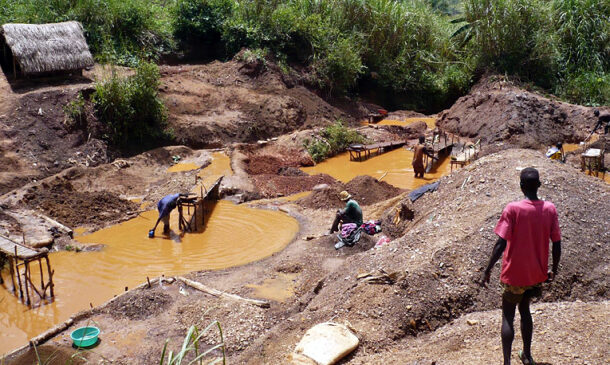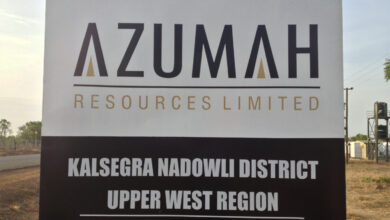Foreign Involvement and Political Tensions Undermine Stability in Ghana’s Expanding Gold Sector – Report

Ghana’s gold sector is facing mounting pressures from foreign interference, shifting technologies, and intensifying political competition, according to a new report by the Global Initiative Against Transnational Organised Crime, co-authored by extractives analyst Dr. Gideon Ofosu-Peasah.
The report, “Mapping Ghana’s Expanding Gold Sector,” presents a detailed overview of how foreign nationals are playing a growing role in both licensed and unlicensed mining activities, injecting capital, technology, and in some cases, introducing links to transnational criminal networks.
“Foreign nationals are the dominant force behind technological and financial inputs in Ghana’s informal gold trade,” the report notes. “Their presence is reshaping both the operational and financial dynamics of the sector.”
Among the key concerns is the increasing use of cyanide-based gold processing in small-scale and informal operations. Once limited to industrial mines, cyanide is now being used more widely, bringing with it heightened risks of toxic waste and unregulated environmental damage, particularly in rural communities where oversight is weak.
Criminal Networks and Regulatory Gaps
The report also highlights troubling links between Ghana’s gold sector and foreign criminal networks, including emerging connections to European-based syndicates. These actors are believed to be targeting Ghana’s unregulated gold trade for money laundering and smuggling, exploiting gaps in enforcement and oversight.
“Illicit financial flows tied to gold exports are becoming increasingly sophisticated and harder to detect,” the report warns.
Political Control and Traditional Authority Conflicts
As Ghana moves toward its December 2024 elections, the report finds that political competition over control of mining assets and licensing is intensifying. Political groups are reportedly using access to gold resources to consolidate power and mobilize electoral support, raising questions about transparency and accountability in how mining permits are issued and enforced.
At the local level, the study reveals growing friction between the state and traditional leaders, particularly over the government’s Community Mining Scheme (CMS). Chiefs in some regions are pushing back, claiming exclusion from key decisions and accusing authorities of undermining customary land rights.
Call for Policy Reform
The report recommends urgent regulatory reforms to address emerging threats, including:
-
Stricter controls on cyanide use and gold processing in non-industrial sites
-
Enhanced scrutiny of foreign actors and investment in the sector
-
Greater transparency and stakeholder engagement in CMS implementation
-
Strengthened law enforcement to disrupt illicit gold flows
Ghana remains one of Africa’s top gold producers, but the study warns that without comprehensive reforms, the sector’s integrity and long-term sustainability could be at risk.




